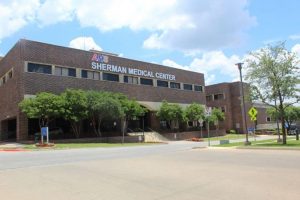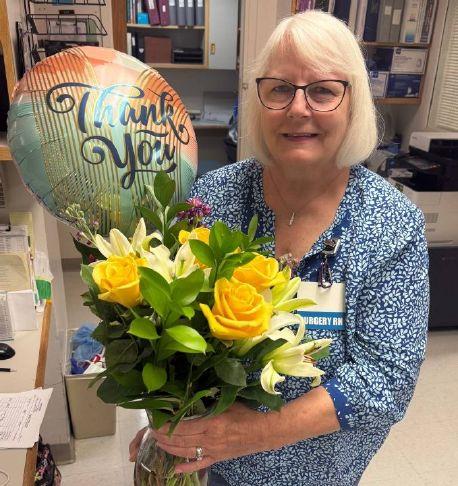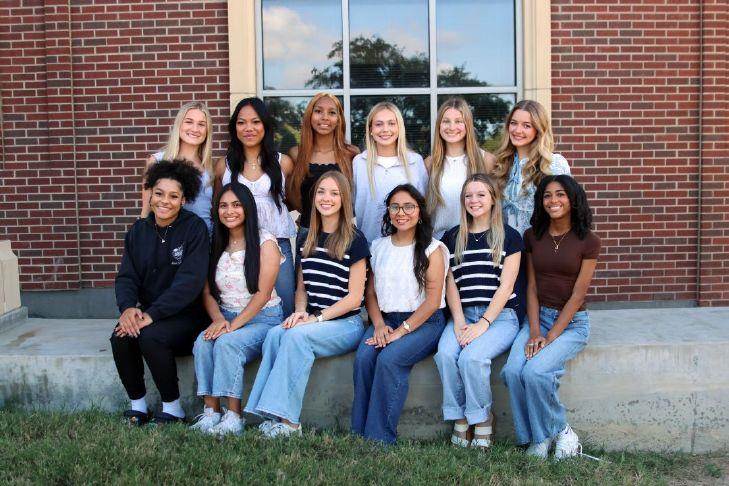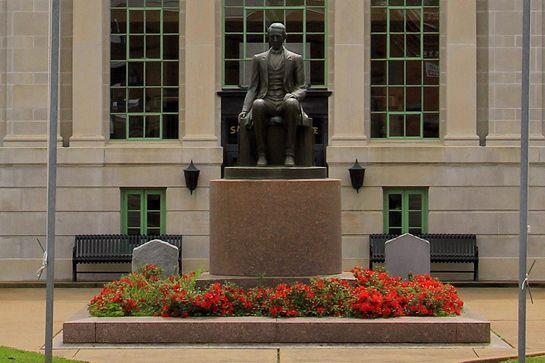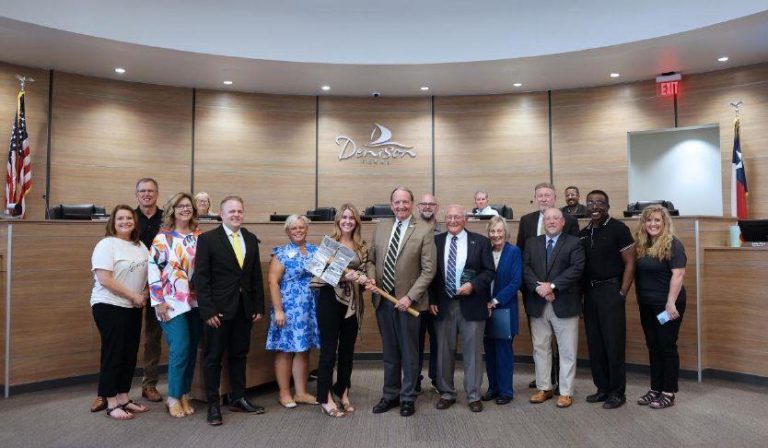This week, AHS Sherman Medical Center celebrated one of its own for her love for and dedication to this community. Kim Clark recently celebrated 45 years as a nurse, and all 45 years have been with the same facility.
Clark has been working as a surgery nurse since she graduated from Grayson College and got her first nursing job back in 1980.
“My great uncle was a doctor and in those days we spent lots of time in his office just playing or hanging out. I loved watching him with patients and the way he handled them. So, I knew as a young girl that I would either be a nurse or a doctor.”
Clark was born in Danberry Connecticut but has lived in Grayson County since she was about six months. She has remained a Denison resident all her life.
“My mother worked at Grayson County College (now Grayson College) in the library,” she said this week. “I knew I was going to go to Grayson County College at least for the first few years. So, that is what I did.”
Clark started at the local community college when she was a junior in high school.
“I started out there and got all of my pre-requisites out of the way,” she said. “So, when I graduated high school, I was accepted into the nursing program. I went and graduated with my degree when I was 20 years old.”
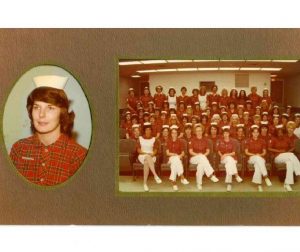
Then, through the convincing of a friend, Clark applied to what was then Wilson N. Jones Hospital.
“I had a girl friend from nursing school who told me that Wilson N. Jones surgery was needing to hire five RNs and we should go apply,” she said. “I was like, ‘I do not know about surgery.’ I had already planned to work in the ER or ICU. She said, ‘Let’s go give it a shot.’ We applied and we came to work here together. I am still here.”
Jumping into the world of being working nurse, Clark said she initially did not like the department she chose.
“But I did not like it because I really did not have a good director,” she said. “After we changed directors and things settled down, it was just a lot of fun. I loved the fast pace of the cases that would come in from the ER. I had an orthopedic surgeon who tutored me in orthopedics so I loved doing orthopedic surgery.”
From there, surgery nursing was deep in her blood.
“Either you love surgery or it’s just not for you,” she said. “I just happen to be one that loves it.”
Clark has worked under a lot of administrative staff and bosses, but she said there is one thing that remains the same at the hospital.
“The one commonality at this hospital is that whoever is in charge in administration, or in the OR, 90 percent of the time would listen to what you have to say,” she said. “They have an open-door policy.
“Now, that did not mean they were going to do what you asked them to do, but you were always welcome. You could always sit down and talk. You could always vent. You could always share. That made it easy to stay. It was not a place where you just felt like you were working for a paycheck. It felt like a place where you have input.
She said that family environment still exists at the hospital today.
“One of the things that the public does not normally see or understand is that the nurse is the advocate,” she said. “They are the patient advocate. The doctors come in and they prescribe. They do, but it is the nurse who is with the patient day by day, hour by hour. They are the ones that notice the subtle changes. They are able to tell the surgeon, “Hey this is what I am seeing…this is what I am noticing…” So, nurses are really kind of the first line of defense and advocacy for a patient. And sometimes, I think that gets overlooked. Sometimes we think that nurses just give the meds and shots…are little robots for doctors. But it is so much more than that. They are constantly assessing and evaluating and seeing what the patient needs. They are advocating for the best interest of the patient.”
A multi-level team exists.
“You have the physician who of course has a greater level of education and in-depth knowledge base, but the physician cannot do what the nurse does,” she said. “And the nurse cannot do what the physician does. It takes us all. The nurse is the one that is with the patient at the bedside.”
One of the biggest changes, Clark has seen over the decades she has put in is how technology has adapted.
“It has to be the robot,” she said about one thing that is used today that would have surprised her younger self. “When I graduated nursing school, if you had a computer, it took up a whole room. We did not have little desktop computers. We still used typewriters and such. So, the concept of a robot actually doing surgery or actually assisting in surgery or making very intense delicate surgeries easier, was just unfathomable because they just did not exist.”
It was not long ago that computer assisted medicine made its way into everyday use in medicine.
“I used to joke with nurses 20 years ago saying, “I did not know we needed to have an electrical engineering degree to be nurses” because that was when all of the laparoscopic and endoscopic surgeries came into play and TVs and cameras,” Clark said. “We thought about all the wires and new things we had to learn, but it takes a multitude of aspects of nursing to make medicine happen today as it does.”
But once someone has earned a nursing degree, the sky is the limit.
“I would tell someone who is thinking about it to go for it,” Clark said. “Get a nursing degree. Once you get the basic degree, the world is unlimited. If you want to fly, you can be a flight nurse. If you want to go to the service, you can be a nurse in the service. If you want to be a CEO, you can be a CEO of a hospital. There are no limits once you have the basic degree.
“Now they have telephonic nursing. They need nurses who will teach. They need nurses who will be in administration. They need people who are nurses that will do research. Whatever your personality is, there is a job for you with that nursing degree. Nurses are helping write computer programs, believe it or not, because there has to be programs that hospitals use.
You can specialize out in any direction.
“If you are a nurse in good standing, you will always be able to find a job,” she said.
One thing that every nurse needs, Clark said, is compassion.
“With the exception of very few days in my life, I have always loved getting up and coming to work at this hospital,” she said. “We have had some hard times, but we have stood together. We have held each other’s hands. We have supported each other. I have never woke up sad about going to work. I have always woken up thinking, ‘I get to go to work’ because I have always loved what I have done.”
As for her career, Clark said, the end is not quite here yet.
“I will probably hang out as long as they will let me.”
